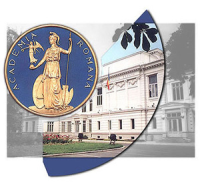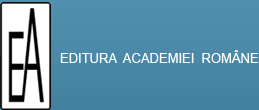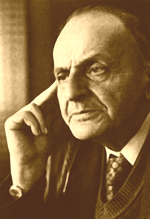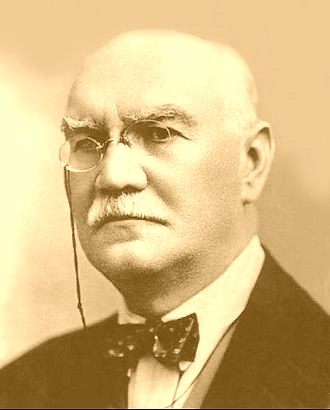Main Menu
DEPARTAMENTE
REVISTE
PUBLICAŢII PERIODICE
LEGĂTURI
CONFERINȚE
 Simpozionul Național Constantin Noica, Ediția a XVI-a „Povestiri despre om…” (26-29 septembrie 2024)
Simpozionul Național Constantin Noica, Ediția a XVI-a „Povestiri despre om…” (26-29 septembrie 2024)SIMPOZIONUL NAŢIONAL
SIMPOZIONUL NAŢIONAL
Welcome
Probleme de logică, vol. XXVII, 2024
| PROBLEME DE LOGICĂ |
| Numărul curent |
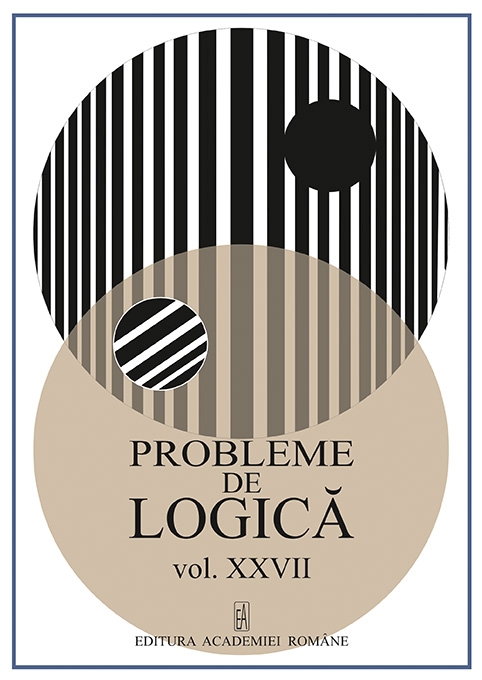 PROBLEME DE LOGICĂ, vol. XXVII PROBLEME DE LOGICĂ, vol. XXVIICoordonatori: Acad. Mircea Dumitru, Marius Dobre, Viorel Vizureanu, Ștefan-Dominic Georgescu Editura Academiei Române, Bucureşti, 2024 ISSN 3008-2870 ISSN-L 1454- 2366 C U P R I N S INTRODUCERE ÎN LOGICA EMOȚIILOR IONEL NARIȚA Universitatea de Vest din Timișoara INTRODUCTION INTO THE LOGIC OF EMOTIONS Abstract. The emotions can be analyzed through beliefs and attitudes. Since emotions are beliefs, they obey to the principle of doxastic voluntarism. Agents may feel wrong emotions, therefore, the facts must have their own emotional value. The emotional value of a fact is the result of the ontic and ethical values of that fact, and it is relative to a certain context. The supposition concerning the emotional value of a fact is expressed through emotional propositions. Hence, a logic of emotional propositions can be developed. Keywords: belief, attitude, emotion, ethical values, emotional values.  [Probleme de logică, vol. XXVII, Editura Academiei Române, Bucureşti, 2024, pp. 7-21] [Probleme de logică, vol. XXVII, Editura Academiei Române, Bucureşti, 2024, pp. 7-21] |
| O PROBLEMĂ DE SPAŢIU ŞI LOGICĂ. SENS ȘI EXPERIMENT METAFIZIC IULIAN GRIGORIU Universitatea „Dunărea de Jos”, Galaţi A MATTER OF SPACE AND LOGIC. SENSE AND METAPHYSICAL EXPERIMENT Abstract. In this study I show that the Kantian problem of overlapping the left and right hands cannot be reduced to a one-dimensional situation (as Wittgenstein argues in Tractatus Logico-Philosophicus at sentence 6.36111). Moreover, I argue that it is not possible for two inversely oriented segments to overlap in any dimension and that this also applies to two (one-dimensional) point objects. Responsible for this fact is the intrinsic sense of the space reflected in any object within it, which I emphasize through a metaphysical experiment. To explain such a situation, I employ the concepts: absolute space (his intuition is an illusion), Euclidean-Kantian geometric space (as a priori form of our sensibility), the body’s proper space (conventional and relative to the opposing, improper) allotted only to the object, in relation to the space of representation for the subject, mathematical in nature, where intuitions are rationally transposed. Keywords: incongruent counterparts, absolute space, geometric space, proper space, space of representation, logically space.  [Probleme de logică, vol. XXVII, Editura Academiei Române, Bucureşti, 2024, pp. 23-38] [Probleme de logică, vol. XXVII, Editura Academiei Române, Bucureşti, 2024, pp. 23-38] |
| LOGICA RELAȚIILOR ȘI FUNCȚIA STRUCTURAL-SIMBOLICĂ IOAN BIRIȘ Universitatea de Vest din Timișoara THE LOGIC OF RELATIONS AND THE STRUCTURAL-SIMBOLIC FUNCTION Abstract. The present study starts from the assumption that today’s “standard logic” mainly comprises propositional calculus, predicate calculus, and relational calculus. Of these, the logic of relations constitutes the most important and complex part. For a good understanding of the logic of relations, the author believes that they should be specified as nuanced as possible: the relationship of belonging; the inclusion relationship; set-theoretic definition of relations; the extension of the mathematical function to the structural-symbolic function. Following these aspects, the study highlights the bifurcation of research since the beginning of the 20th century: a direction (represented especially by Russell) that advances towards perfecting the logical calculation of relations; another direction (represented especially by Cassirer) which tries to extend the concept of mathematical function to a concept of maximum generality, namely to the concept of symbolic function. Keywords: logic of relations, membership, inclusion, mathematical function, symbolic function.  [Probleme de logică, vol. XXVII, Editura Academiei Române, Bucureşti, 2024, pp. 39-54] [Probleme de logică, vol. XXVII, Editura Academiei Române, Bucureşti, 2024, pp. 39-54] |
| PROVABILITY AND SATISFIABILITY. ON THE LOCAL MODELS FOR NATURAL DEDUCTION CONSTANTIN C. BRÎNCUȘ Institutul de Filosofie și Psihologie „Constantin Rădulescu-Motru”, Academia Română Abstract. This paper discusses the relation between the natural deduction rules of deduction in sequent format and the provability valuation starting from Garson’s Local Expression Theorem, which is meant to establish that the natural deduction rules of inference enforce exactly the classical meanings of the propositional connectives if these rules are taken to be locally valid, i.e. if they are taken to preserve sequent satisfaction. I argue that the natural deduction rules for disjunction are in no better position than the axiomatic calculi in uniquely determining the intended meaning of disjunction when the local models are used, if a satisfied sequent embeds, as a logical inferentialist should require, a formal derivability relation. This happens because, when governed by these rules and without additional semantic assumptions, the disjunction sign still expresses a non-extensional connective, i.e. a connective that, properly understood, has no unique logical characteristic. However, this is not a dead end for the logical inferentialists since both a multiple conclusions formalization of the disjunction operator and a bilateralist one do succeed in restoring the standard meaning of disjunction. Keywords: natural deduction, local models, extensionality, provability valuation.  [Probleme de logică, vol. XXVII, Editura Academiei Române, Bucureşti, 2024, pp. 56-73] [Probleme de logică, vol. XXVII, Editura Academiei Române, Bucureşti, 2024, pp. 56-73] |
| A VIRTUE EPISTEMOLOGY FOR RULES OF DEDUCTION? ANDREI-IONUȚ MĂRĂŞOIU Faculty of Philosophy, University of Bucharest Abstract. I tentatively explore what a virtue epistemology for logic might look like, why one might be motivated to look for such a view, why it might target logical rules specifically, and how such a perspective might be better suited from some practical standpoints such as teaching logic, mixing philosophical views with insights from mathematical practice, and connecting the epistemology of logic with the psychology of expertise. Keywords: natural deduction, logical rules, epistemology of logic, virtue theory, critical thinking skills  [Probleme de logică, vol. XXVII, Editura Academiei Române, Bucureşti, 2024, pp. 75-89] [Probleme de logică, vol. XXVII, Editura Academiei Române, Bucureşti, 2024, pp. 75-89] |
| LOGOSUL HERACLITIC: O INTERPRETARE RELAȚIONALĂ CLAUDIU BACIU Institutul de Filosofie și Psihologie „Constantin Rădulescu-Motru”, Academia Română THE HERACLITEAN LOGOS: A RELATIONAL INTERPRETATION Abstract. Starting from the assumption that Heraclitus attempts to develop a different way of looking at things from the traditional logical view, the following paper argues that we could build his concept of Logos into a unity of all possible paradigms of understanding and knowledge that humanity develops throughout its history, a unity both encompassing all possible paradigms within itself and also configuring itself uniquely within each individual paradigm. Keywords: Logos, logic, paradigm, being, unity of opposites.  [Probleme de logică, vol. XXVII, Editura Academiei Române, Bucureşti, 2024, pp. 91-102] [Probleme de logică, vol. XXVII, Editura Academiei Române, Bucureşti, 2024, pp. 91-102] |
| PRINCIPIUL PLENITUDINII ÎN VERSIUNE LEIBNIZIANĂ – O POARTĂ CĂTRE LOGICA LUMILOR POSIBILE BIANCA BEATRICE MICHI Institutul de Filosofie și Psihologie „Constantin Rădulescu-Motru”, Academia Română THE PRINCIPLE OF PLENITUDE IN THE LEIBNIZIAN VERSION – A GATEWAY TO THE LOGIC OF POSSIBLE WORLDS Abstract. The principle of plenitude formulated by A. O. Lovejoy in 1936 in The Great Chain of Being has a special place in Leibniz’s philosophical system. Leibniz’s formulation of the principle of plenitude is based on his logical, metaphysical and theological conception, and its acceptance by the philosopher from Hanover is based on several arguments. The main directions of argumentation include the relationship between possibility, actualization and the principle of sufficient reason, the theory of the striving possibles and the theory of divine choice which means that God creates an infinity of possible worlds from which he chooses the best one for actualization (law of the optimum). Leibniz's approach to the principle of plenitude is not only the basis of his theory about possible worlds, but it opens new topics on the logic of the possible worlds. Keywords: principle of plenitude, possible, actualisation, the principle of sufficient reason, striving possibles, possible worlds, divine choice, individual concept, compossibility.  [Probleme de logică, vol. XXVII, Editura Academiei Române, Bucureşti, 2024, pp. 103-122] [Probleme de logică, vol. XXVII, Editura Academiei Române, Bucureşti, 2024, pp. 103-122] |
| GENIUL ȘI PERFECȚIUNEA CUNOAȘTERII ÎN LOGICA LUI KANT FLOREA LUCACI Universitatea „Aurel Vlaicu”, Arad THE GENIUS AND THE PERFECTION OF KNOWLEDGE IN KANT’S LOGIC Abstract. A thought-provoking matter from Immanuel Kant’s Introduction to the General Logic is the question of the relationship between logic and knowledge, and related to that of the “aesthetic and logical perfection of knowledge.” Moreover, from the perspective of what we understand today by the science of logic, it seems even strange that Immanuel Kant introduces genius into his analysis as a guarantor of the perfection of knowledge, implicitly of the truth of a knowledge. It would be understood that the purpose of a philosopher of genius would be to contribute to the historical progress of knowledge through his work, deepening it with valid-convincing arguments, but also aesthetically-captivating, even seductive, thus contributing to the creation of a "rational" society ” by spreading culture among the people. Keywords: Kant, genius, transcendental subject, logic, theory of knowledge, imagination.  [Probleme de logică, vol. XXVII, Editura Academiei Române, Bucureşti, 2024, pp. 123-132] [Probleme de logică, vol. XXVII, Editura Academiei Române, Bucureşti, 2024, pp. 123-132] |
| IMMANUEL KANT ȘI RESURSELE INFERENȚIONALE GABRIEL ILIESCU Universitatea „Spiru Haret”, București IMMANUEL KANT AND THE INFERENTIAL RESOURCES Abstract. The question that concerns us here is whether the inferentional resources available today allow us unequivocally demonstrate the existence of God. During Kant’s lifetime there were no such inferences that would allow such a goal reaching of such a goal to be reached. The logic situation has changed. We distinguish two periods of logic: the Kantian period and the post-kantian period. In this second period, is such a valid reasoning with true premisses posible, that allows deducing of the conclusion “God exists” as a true conclusion? We suppose the negative answer. The conclusion could have a separate status. This is due to the incompletnesss of our our knowlwdge. That means we cluod be dealing with an unprovable truth. Keywords: inferential resources, God, kantian period of logic, perioadă postkantiană, completness, unprovable truth.  [Probleme de logică, vol. XXVII, Editura Academiei Române, Bucureşti, 2024, pp. 133-149] [Probleme de logică, vol. XXVII, Editura Academiei Române, Bucureşti, 2024, pp. 133-149] |
| RECONSTRUCŢIA LOGICII CLASICE LA ALEXANDRU SURDU (IV). TEORIA JUDECĂŢII ŞERBAN N. NICOLAU Institutul de Filosofie şi Psihologie „Constantin Rădulescu-Motru”, Academia Română ALEXANDRU SURDU’S RECONSTRUCTION OF CLASSICAL LOGIC (IV). THE THEORY OF JUDGEMENT Abstract. The paper goes on with Alexandru Surdu’s reconstruction of classical-traditional logic – with the second independent form of this logic, the judgement. Though it is not possible to find it as such in Aristotle’s existing treaties, the theory of judgement is reconstructed according to the principles of classical logic, to other existing Aristotelian theories and to ancient Greek tradition of the commentators of Aristotelian logic. Keywords: independent logical form, principle, form, cause, thought.  [Probleme de logică, vol. XXVII, Editura Academiei Române, Bucureşti, 2024, pp. 151-167] [Probleme de logică, vol. XXVII, Editura Academiei Române, Bucureşti, 2024, pp. 151-167] |
| CONTRACȚIUNEA LOGICĂ. O NOUĂ IMAGINE A FORMALULUI (I) CEZAR ROȘU Institutul de Filosofie și Psihologie „Constantin Rădulescu-Motru”, Academia Română THE LOGICAL CONTRACTION. A NEW IMAGE OF THE FORMAL Abstract. The logical contraction represents the second moment, that of fixing, of the thinking process. It connects the first initial moment of the expansion of thought towards necessity, and the third moment of real logic (as amed by Constantin Noica): the dialectical. These three terms from ontology: individual, determinations, general, will create in logic the triangle, which philosophy appealed to along time in its attempt to order the diversity of immediate existence. Either starting from the individual and climbing through determinations towards the general, or the opposite way from substance through determinations to the subject, or on the modern way from determinations which, under the power of the law, explains the individual fact – the attempt was to identify the logical within the being. But in order to see how the logical triangle functions within the process of contraction, one must find the nature of the three terms, and also the nature of the new logical forms that Noica proposes. Keywords: individual, determinations, general, logical field, physical field, morfogenetical field, the resonance principle, the formative causation principle, the logical form of things.  [Probleme de logică, vol. XXVII, Editura Academiei Române, Bucureşti, 2024, pp. 169-178] [Probleme de logică, vol. XXVII, Editura Academiei Române, Bucureşti, 2024, pp. 169-178] |
| CONDIȚII ȘI RESTRICȚII CATEGORIAL-FORMALE ÎN ELABORAREA SIMBOLICĂ A LOGICII DIALECTICO-SPECULATIVE ȘTEFAN-DOMINIC GEORGESCU Institutul de Filosofie și Psihologie „Constantin Rădulescu-Motru”, Academia Română Academia de Studii Economice, București CATEGORIAL-FORMAL CONDITIONS AND RESTRICTIONS FOR THE SYMBOLIC CONSTRUCTION OF DIALECTICAL-SPECULATIVE LOGIC Abstract. The paper presents some of the conditions and restrictions for the symbolic construction of dialectical-speculative logic. The starting point is Hegel’s conception on logic, although the German thinker seems to have never had the intention to further ellaborate such a logic as a special science. The main point is that this possibly new type of logic has simmilarities with other types of logic, but its own rules and structure, and it could be usefull to help theory of categories – as an actual form of philosophy – but also as a provired of a new foundation of particular sciences. Keywords: dialectical-speculative logic, traditional logic, symbolic logic, Hegel, category.  [Probleme de logică, vol. XXVII, Editura Academiei Române, Bucureşti, 2024, pp. 179-193] [Probleme de logică, vol. XXVII, Editura Academiei Române, Bucureşti, 2024, pp. 179-193] |
| ELEMENTE DE LOGICĂ ÎN FILOSOFIA LUI PLATON MARIUS DOBRE Institutul de Filosofie și Psihologie „Constantin Rădulescu-Motru”, Academia Română ELEMENTS OF LOGIC IN PLATO’S PHILOSOPHY Abstract. The article starts with the question „Was Plato a real logician?”; some commentators have argued that he was, while others argued that he was not; what is certain is that Plato’s philosophy contains many valuable elements of logic that were later incorporated into Aristotelian logic. The Socratic moment is then recalled, highlighting Plato's teacher’s contributions to issues of induction and definition. The final and most extensive chapter examines Plato’s contributions to topics such as: dialectics, the principles of logic, induction, definition, division, the principle of specialization, analogy, hypothesis, the highest genera, the logical difficulties of the theory of ideas, sophisms. Keywords: Plato logician?, Socrates’ logic, Plato’s logic.  [Probleme de logică, vol. XXVII, Editura Academiei Române, Bucureşti, 2024, pp. 196-221] [Probleme de logică, vol. XXVII, Editura Academiei Române, Bucureşti, 2024, pp. 196-221] |
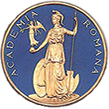

 P S I H O L O G I E
P S I H O L O G I E